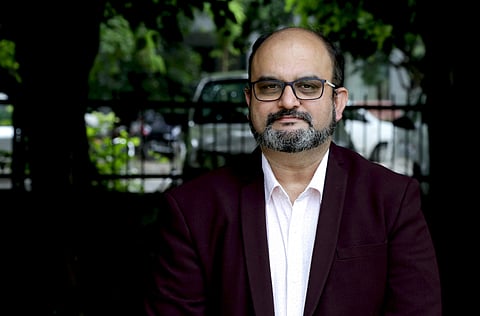

Elections are one of modern India's greatest political spectacles — everything from the mass rallies, the demonstrations and the hyperbole speeches to the tall promises made by politicians, they never cease to amaze us, every five years. But our (well, most of our) understanding of elections — the way they work, the effect they have on people — is almost always limited to textbook knowledge and newspaper reports. When India Votes: The Dynamics of Successful Election Campaigning, co-authored by Dr Samir Kapur, as the title suggests, throws light on the dynamics and the workings behind elections in India. "The book examines the theoretical underpinnings of the relationship between democracy, mass media and election campaigning, as well as representative campaigns of the last three decades of the two major players, viz the INC and the BJP," says Dr Kapur, a seasoned communications professional with over two decades of experience in the field, adding "Elections have always been festive occasion in liberal democracies and India is no exception. The power of mass contact through public gatherings, reinforced by the event-driven media channels and the power of digital media to reach out to the young audience, has redefined electioneering in India."
Dr Samir is also an engineer, MBA graduate and PhD holder who is currently on the Board of Directors at Adfactors PR, India's largest PR agency. We spoke to him to understand more about his intentions behind the book, which throws light on how popular communication theories can be employed in the context of Indian elections, from theoretical and practical perspectives. Excerpts:
Is this your first book? What prompted you to write it?
Yes, this is my first book. Having strategised and executed multiple PR, industrial relations, advocacy and marketing campaigns for various political parties and companies, I was asked by my colleagues and clients to write about my learnings. I was approached by my co-author, Dr Jaishri Jethwaney, a Communications professor who has over 15 years of experience in teaching, to write a book on this topic and that is where it all began.
What aspect of your book will people be most surprised about?
The book will provide the reader with a perspective on the representative campaigns over the last three decades of the two major parties, the Indian National Congress and the Bhartiya Janata Party — the positioning strategies, creative rendition and its possible impact on the voters' behaviour. The book also provides the brand management principles and strategies employed by the major players and juxtapose that to analyse how the communication strategies have been drawn from the good old theory of rhetoric. The reader will also try to see how a strange phenomenon has occurred in the Indian polity during the last few years — the governments being in constant campaign mode, drawing the attention of civil society and the courts, and a general deterioration of public discourse and political narrative.
What are your major takeaways from the election trends in India?
The 16th General Election truly was the mother of all elections as far as using the principles of brand management was concerned. Fought on the presidential style of campaigning, someone who people dismissed six months ahead of the election turned the tide in favour of the beleaguered party. Many reasons are ascribed for the resounding success of the party but there is no denying that the style of campaigning, the choice of media and tone and tenor of communications were important reasons in building confidence in the prime-ministerial candidate, Narendra Modi.
Describe your journey as a new author.
The hardest part is getting started but once you’re past that hurdle, the rest is easy. While it was a huge breakthrough, the struggle was to persevere and sit and write every day. In the initial days, I would fail to reach my target, even if that target was only a few hundred words as I had a full-time job; writing regularly was a difficult task and I had to discipline myself and put a process in place. Dr Jethwaney pushed me hard and gave me strict deadlines, and I kept at it. So I call my journey as an author a sinusoidal journey.
What are your other interests?
I like teaching, giving lectures on Business Statistics, Marketing, PR and Advertising and Journalism at various colleges like IIMC, IP University, SAC and DSC (Please expand). I am associated with NGOs like CRY and I also teach less-privileged kids subjects like Accounts, English and Mathematics on the weekends.
